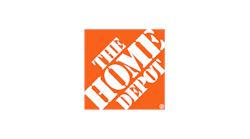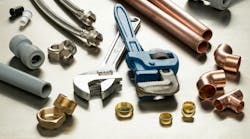Latest from Management
When a Plumber Becomes Their Own Worst Enemy
Sponsored
Over a century ago, before automobiles and electricity, nothing moved faster than a man on a horse. Back then, if you stole a man’s horse they could, would, and did, hang you without much fanfare. Leaving a man stranded afoot in the hostile wilderness that was our fledgling America was akin to a death sentence, and the people of that era treated it accordingly.
A horse was most people’s most valuable asset. It counted for more than just about anything they owned, because it could be used for working, riding, traveling and more. Likewise, a good firearm, knives of any variety and other tools of the day were cherished possessions and were passed down from one generation to the next. Fast forward 150 years or so, most people in the USA today don’t own horses for work, but they own at least one vehicle and myriad other things.
To Buy or Not to Buy?
Many of the things we purchase today are disposable and/or quickly outdated. The industrial revolution has made “things” cheaper, easier to acquire and readily available. Because of this phenomenon, many in the trades don’t appreciate the almost dazzling array of labor-saving products in the present marketplace.
Today, the trades have access to, and utilize, a wide array of tools and equipment to make jobs easier, faster or to have a better outcome. Time is money it is said, and anything which can save time (provided the cost makes sense) is perceived as valuable.
Some of you ancients out there might remember using a cold chisel and hand sledge (sometimes called a “lump” hammer) to cut cast iron soil pipe. How happy were you when the cast iron snapper came out? That one tool increased productivity by at least a factor of eight or more! The perceived value of that tool was readily apparent when you could cut a piece of soil pipe in a few seconds as opposed to as many as ten minutes. That doesn’t even begin to quantify the wear and tear on the journeyman (or more than likely, the apprentice).
It didn’t take much figuring to see that the investment in such a tool would return itself many times over. A boss or owner who couldn’t see the value in a tool like that probably shouldn’t have been in business in the first place.
When you find a tool that fits a real need perfectly, you know it. Let us say, for example, that you work on a lot of commercial buildings. Those buildings have pre-cast concrete walls and you need to run piping vertically, through the floors and maybe even through a wall. How cool is it to have a core drill? Oh sure, you could farm out that work to a sub-subcontractor, but there comes a time when doing that costs you more than the investment in the core drill, and you will have immediate access to the tool when needed instead of scheduling a core driller to come in. Purchasing a core drill and bits is a major investment, but if you are consistently coring holes through concrete, the investment pays dividends.
Function and Form
Tools that make you faster make you money. Today we have new electronic devices for so many things: line location, leak detection, sewer line stoppage and line integrity, water line joining and any number of other handy-dandy things. Just like that cast iron snapper, these new tools cost money. Whether or not you make the investment in them depends on several factors, the least of which is “curb appeal” if you get my meaning. We all want that new Mustang when a Focus will do the same job.
Especially in today’s economic climate, investing in anything that does not have a tangible, immediate return is just not smart business. It is up to you, the business owner, to evaluate each capital expenditure and to project the rate of return on that expenditure. Investing in “cool” doesn’t pay dividends nearly as well as investing in practical. Asking yourself, “will this purchase help to increase profits, or make me/us more efficient in the long run?”
Vehicles are a perfect example of this dictum. When you buy a truck or trucks, what are your criteria? Do you get the vehicle(s) that will give you the most utility, have the best service record, are the most versatile? Or do you go for the flash—distinctive paint jobs, power everything, neat wheels?
Since vehicles are probably your most expensive capital investment, it pays to invest the time and effort to determine exactly what your present needs are and what you project them to be in the future. Keep in mind that even though vehicles are, usually, your most expensive investment, the payback on that investment is probably the longest of any capital investment except real estate (a building).
When you need to invest in your company, make sure you do your homework. The time you spend on research and investigation of a new piece of equipment or vehicle is time well spent. No one needs to tell you how hard it is to make money today. When you spend it on improving your company, spend it wisely and dearly.
Be an Innovator
Most folks in business know their competitors. Especially if they’ve been in one area for a relatively long period of time. There is always that one shop that has the coolest trucks, tools and equipment. You know, the one that most guys either envy or try to emulate... just a little. Well, that shop has an owner who has a total grasp of the business. He hires the right people, buys the best trucks he can afford, researches tools and equipment that broaden his reach, work-wise, and he probably does a great job at marketing.
We can’t all be that guy, but we can learn from his successes and model ourselves after those innovative techniques that the shop employs. Don’t be shy about copying successful things your competition does. It doesn’t impact you in any negative way, it makes you smart!
The Brooklyn, NY-born author is a retired third-generation master plumber. He founded Sunflower Plumbing & Heating in Shirley, NY, in 1975 and A Professional Commercial Plumbing Inc. in Phoenix in 1980. He holds residential, commercial, industrial and solar plumbing licenses and is certified in welding, clean rooms, polypropylene gas fusion and medical gas piping. He can be reached at [email protected].
Al Schwartz | Founder
The Brooklyn, N.Y.-born author is a retired third generation master plumber. He founded Sunflower Plumbing & Heating in Shirley, N.Y., in 1975 and A Professional Commercial Plumbing Inc. in Phoenix in 1980. He holds residential, commercial, industrial and solar plumbing licenses and is certified in welding, clean rooms, polypropylene gas fusion and medical gas piping. He can be reached at [email protected].


